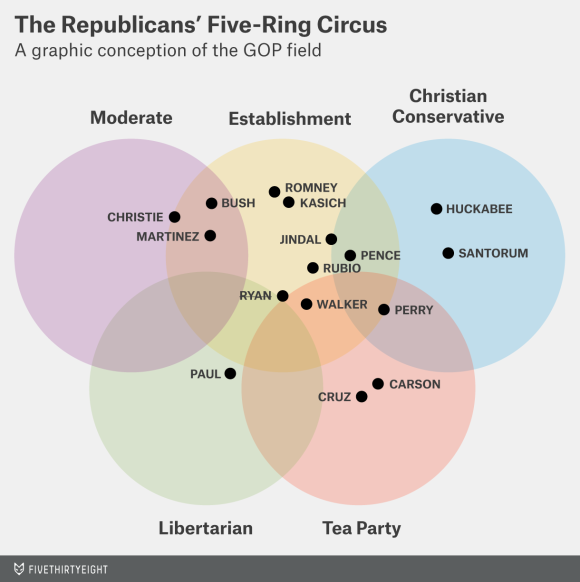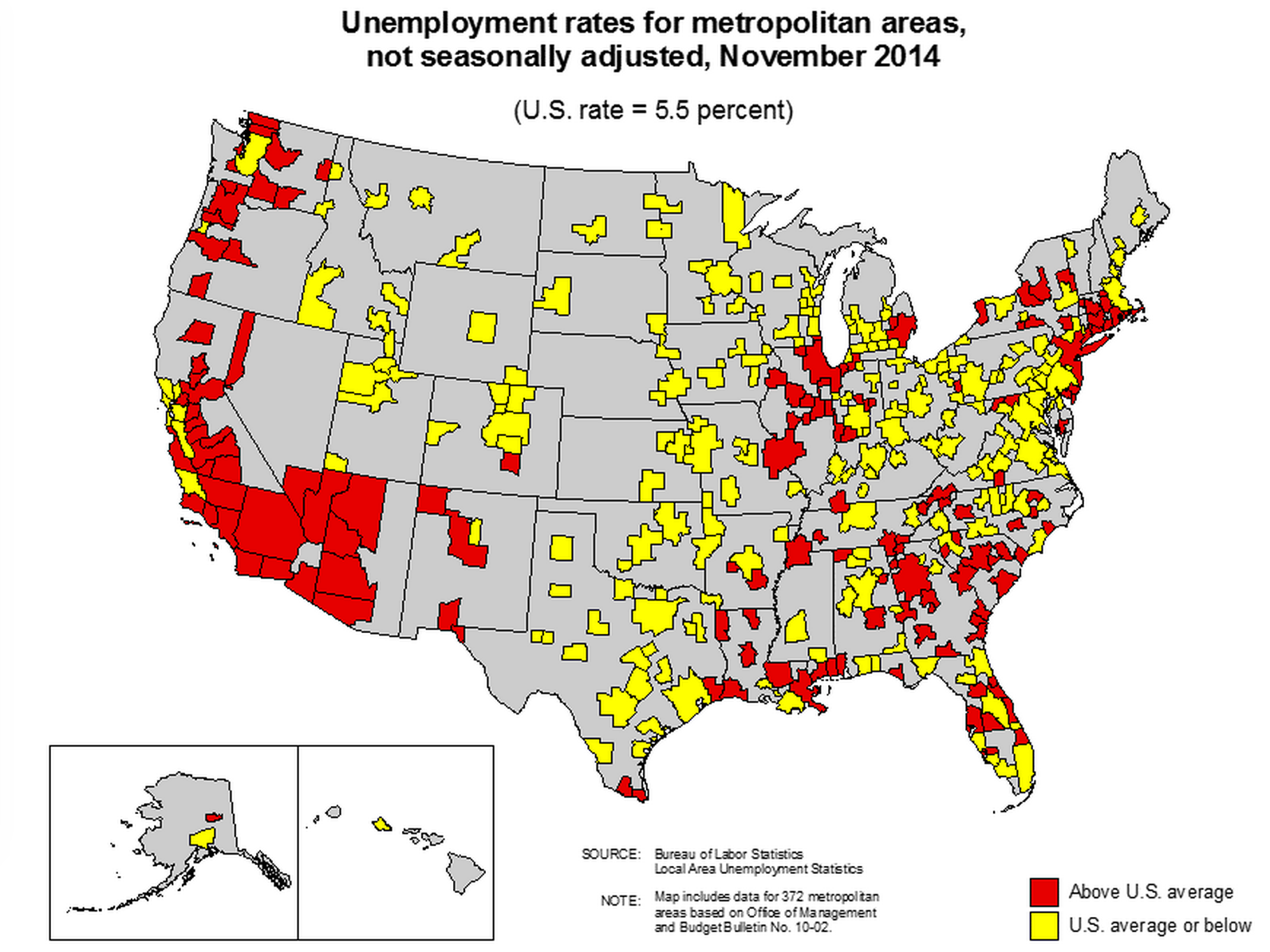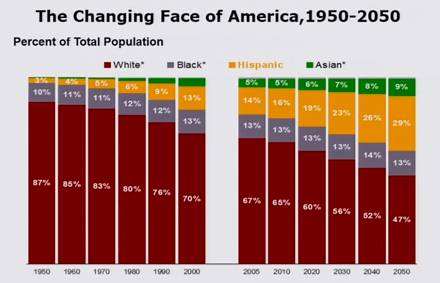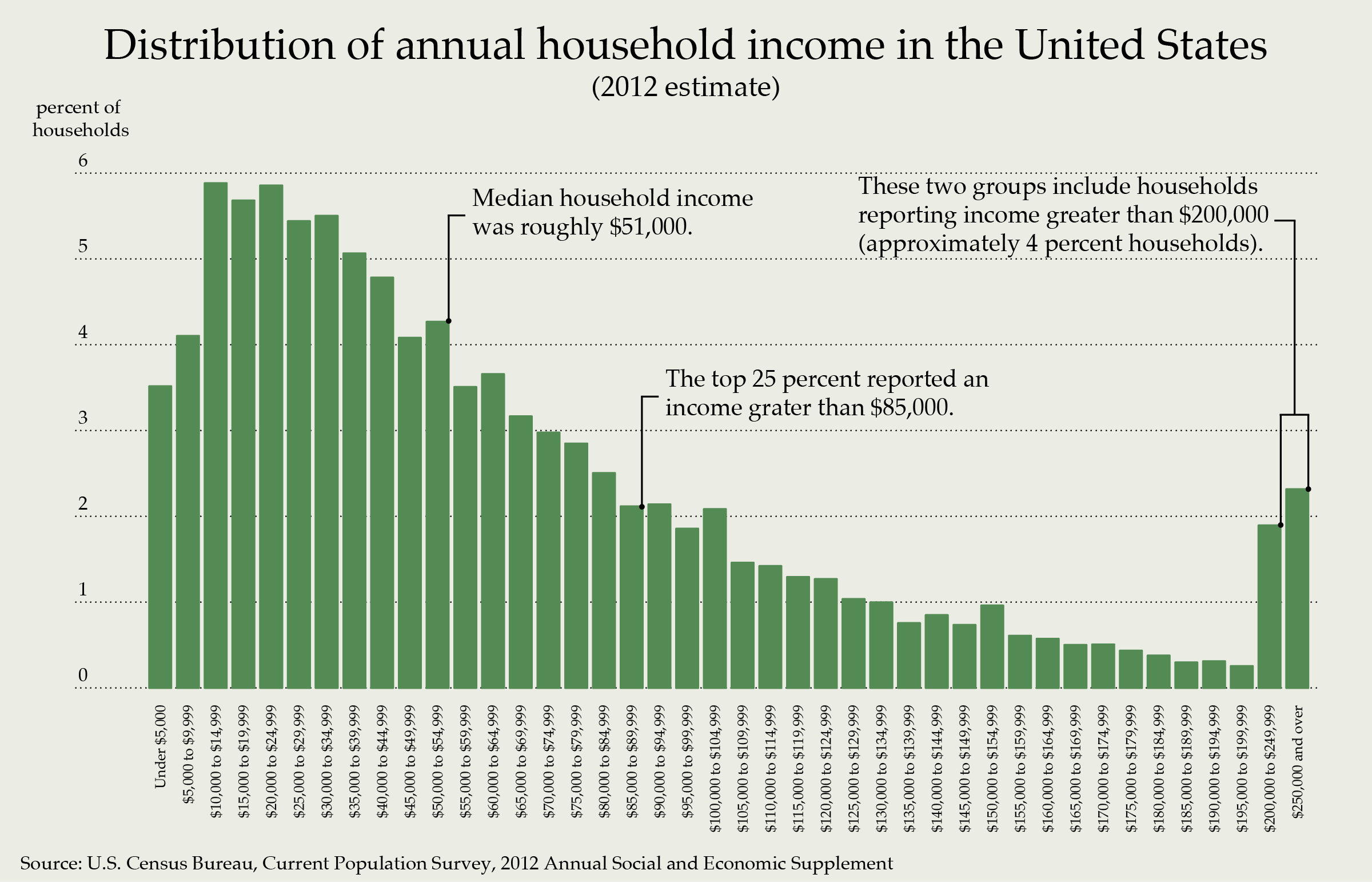
Here's a description of what you're looking at:
I’ve matched the net favorability rating (favorable rating minus unfavorable rating) of every major party nominee among their party’s members since 1980 against the percentage of party members who could form an opinion of them during the first six months of the year before the primaries.
Some nominees, such as Democrats Michael Dukakis and Bill Clinton, weren’t well known at this point in the campaign. Some, such as Republicans Bob Dole and Ronald Reagan, were very well known and popular. There was George W. Bush in 1999, who was particularly well liked, even if he wasn’t universally known. But no prior nominee had a net favorability rating more than 10 percentage points below where you’d expect given his name recognition.
Christie is 25 percentage points off the pace.This provides another look at the range of candidates for the Republican nomination and compares them with where successful candidates in the past - for either party - fit in terms of recognition and favorability.

/cdn0.vox-cdn.com/uploads/chorus_asset/file/2908448/oil_price_jan6.0.png)



/cdn0.vox-cdn.com/uploads/chorus_asset/file/2939700/Screen_Shot_2015-01-15_at_5.05.01_PM.0.0.png)